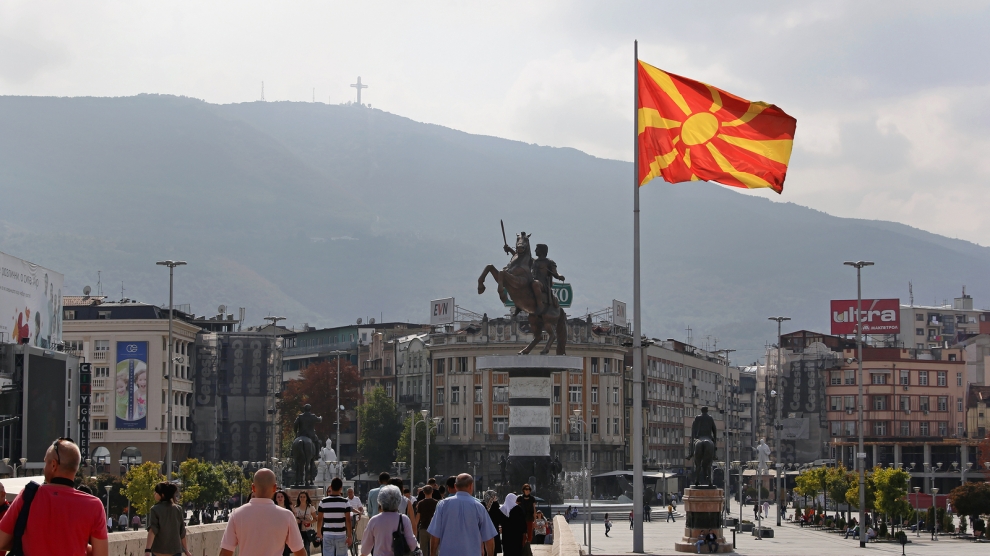The World Health Organisation (WHO) recently ranked Skopje, the capital of North Macedonia, as the third most polluted city in Europe. The organisation’s data shows that Skopje’s annual air pollution stood at 40 µg/m3 in 2018, 60 per cent higher than EU guidelines and four times higher than WHO guidelines.
North Macedonia has an especially poor record when it comes to particulate matter (PM) air pollution, one of the most damaging causes. In 2018, it was the country’s eighth largest mortality risk factor and was linked to 7.3 per cent of deaths, decreasing the average life expectancy in North Macedonia by 0.81 years.
What’s more, the effects of air pollution go beyond health and have a considerable impact on economic growth: it increases medical expenditure, decreases work productivity and contributes to a rise in premature deaths.
Health expenditure in North Macedonia has increased to around 397 million US dollars, which is almost 3.5 per cent of GDP. The country’s job performance has also been affected: the World Bank estimates that the productivity impact of air pollution is around 0.13 per cent of GDP (4.7 million US dollars). Furthermore, the increased death tolls, which result in reduced labour hours and total profits, lead to a decrease in gross domestic product.
Such a major health crisis requires immediate solutions by both public and private actors in the Macedonian economy, with a green economic transformation being vital to resolve the issue.
Air pollution will therefore be one of the key topics of the Macedonia2025 Summit between November 13 and 15 in Skopje, a platform for sharing knowledge, connecting business and inspiring innovation not just in North Macedonia, but all of Southeastern Europe, serving as an opportunity to address the issue by sharing expertise and encouraging a joint dialogue by all stakeholders.
—
Emerging Europe is a media partner of Macedonia2025.


[…] Source link […]
[…] Air pollution a growing threat for North Macedonia […]
[…] https://emerging-europe.com/news/air-pollution-a-growing-threat-for-north-macedonia/ […]
[…] Air pollution a growing threat for North Macedonia […]